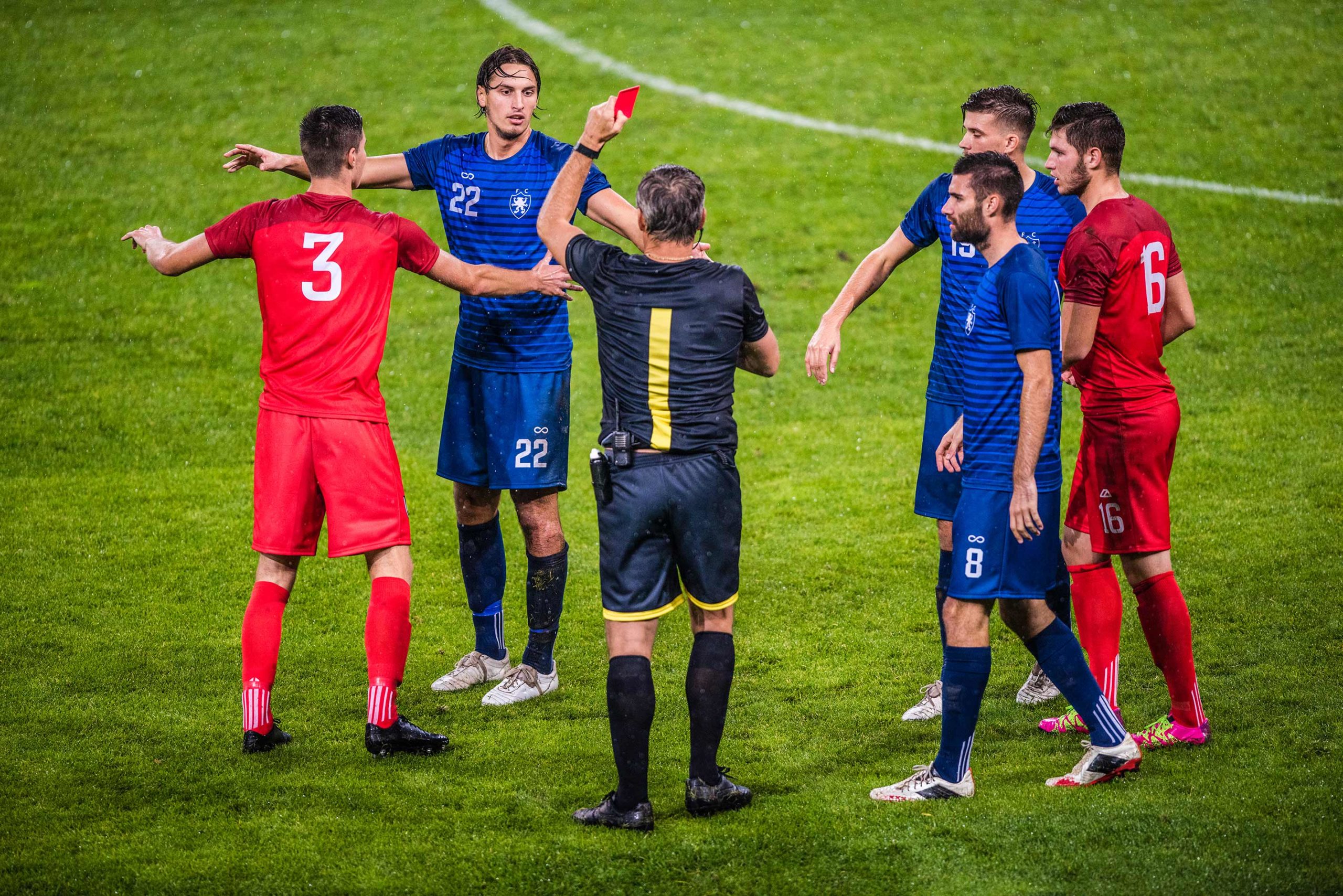
Red Card For One of Switzerland’s Largest Banks
FIFA has once again been found at the center of a federal case of bribery and corruption.
Julius Baer & Co. is set to pay fines totaling US$80 million to settle federal bribery charges involving international soccer governing body, FIFA.
Under the deal, Julius Baer will not face trial or criminal punishment if it abides by the terms of the agreement for the next three and a half years.
As part of the agreement, the bank must overhaul its compliance controls and introduce an enhanced Code of Ethics and Business Conduct, as part of a de-risking transformation likely to cost millions of dollars.
The agreement, part of a series of FIFA-related criminal cases, was announced in Brooklyn, New York, and involved sports marketing companies bribing officials at FIFA and other soccer federations in return for broadcast rights.
A total of $36.37 million was laundered through Julius Baer as part of that scheme, but the bank must pay more than double that sum in fines as part of its deal.
Switzerland’s third-largest bank had been cooperating with the U.S. Department of Justice (DOJ) probe of alleged money laundering and corruption involving FIFA officials and affiliates since 2015.
Tactical Pressing
The DOJ said the firm admitted that the accounts of certain clients “were associated with international soccer, which was generally understood to involve high corruption risks.”
“Nevertheless, a [bank] executive directed the opening of these accounts be fast-tracked in the hope that these clients would provide lucrative business,” the DOJ said.
The executive involved, Jorge Luis Arzuaga, was a relationship manager in the bank’s offices in Montevideo, Uruguay and Zurich, Switzerland. He left a rival firm to work at Julius Baer, and began to transfer client bank accounts from his old firm to his new employer. He worked with two supervisors to set up the scheme using Julius Baer’s Latin American private banking team.
According to emails submitted as evidence, the order was to “make sure that the subject accounts were opened as soon as possible, meaning immediately.” The first supervisor said they could “count on [his] No Objection to be ‘fast tracked’.”
The second supervisor, appearing to put pressure on individuals despite multiple red flags, said: “Having 38 new accounts is what we are paid for and a good stress to have. Please use support from other teams if required. I can’t accept mourners in times like we are leaving [sic].”
Tens of millions of dollars in bribes were paid to corrupt officials across four subsequent tournaments once the schemes were set up.
Prosecutors outlined a litany of compliance control weaknesses, most of which centered on Julius Baer’s failure to act on suspicious transactions or red flags, and its unwillingness to investigate or address multiple other acts of misconduct.
Improved Defence
As part of a raft of improvements to its compliance programme, the bank said that it has “addressed the shortcomings identified in its operations, by re-documenting each of its client relationships and ending its dealings with some customers”.
Intelligent communication and relationship mapping have become a feature of modern surveillance tools. Firms are now deploying automated solutions that can highlight potential conflicts and protect the business against rogue employees by tracking behavioral changes in communication trails.
A bank official pleaded not guilty to the case, and said the bank was agreeing to the deferred prosecution deal, which included the admission that the criminal allegations against it are true and accurate, and can be used against Julius Baer in other proceedings.
The bank did not receive any discount on its fines because it did not voluntarily self-disclose “until there was an imminent threat of disclosure and government investigation”, prosecutors said. It also made various misleading representations to the Justice Department.
In November, 2020, Julius Baer took a provision of nearly $80 million on its books to cover what the bank expected to pay in fines after agreeing in principle with the DOJ to the deferred prosecution deal.
That same month, Arzuagawas sentenced to three years of supervised release in his own criminal case, after pleading guilty to conspiracy several years earlier.
Avoiding Own Goals
Strong internal anti-bribery and corruption controls that are constantly strengthened and updated are a must, experts said, adding that firms must also stay on top of communication surveillance, monitoring channels outside of the trading desk where risks can be exacerbated.
“Companies who bid for, or award high-value contracts, or those with extended supply chains, can learn from FIFA’s reforms,” said Neal Ysart of Clyde & Co. “For any company seeking to enhance their anti-corruption framework, embedding greater transparency into processes and procedures can be a highly effective approach.”
Transparency assists detection, he said, and sends a strong message that provides criminals with fewer options to exploit weakly controlled environments. “It also helps avoid the perception that improper conduct has taken place or conflicts of interest have played a role in any decision-making process,” Ysart said.
“Making it clear that compliance with policy and procedures will be subject to independent scrutiny, and actually implementing that approach, will often act as a powerful deterrent.”







